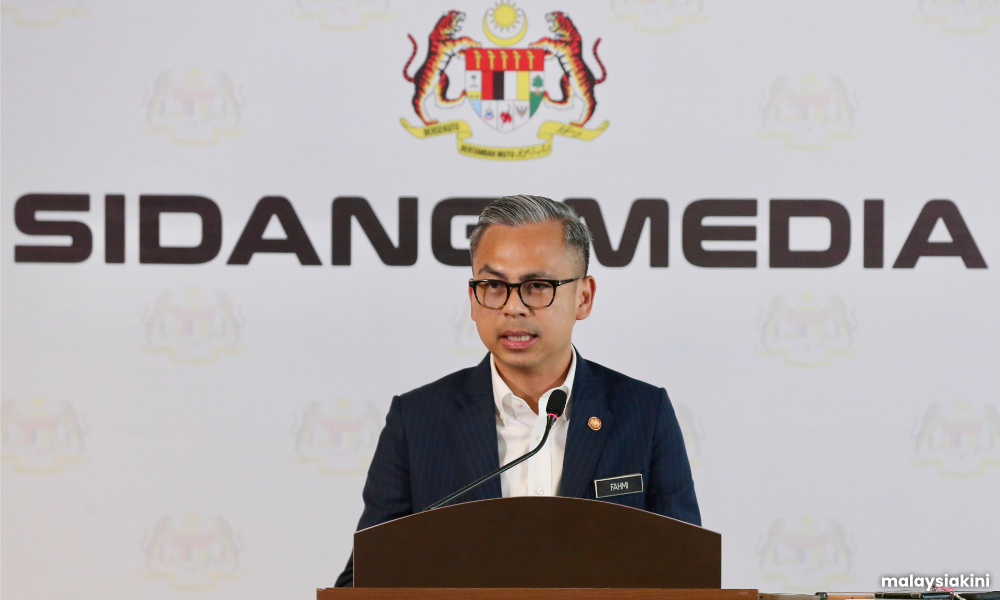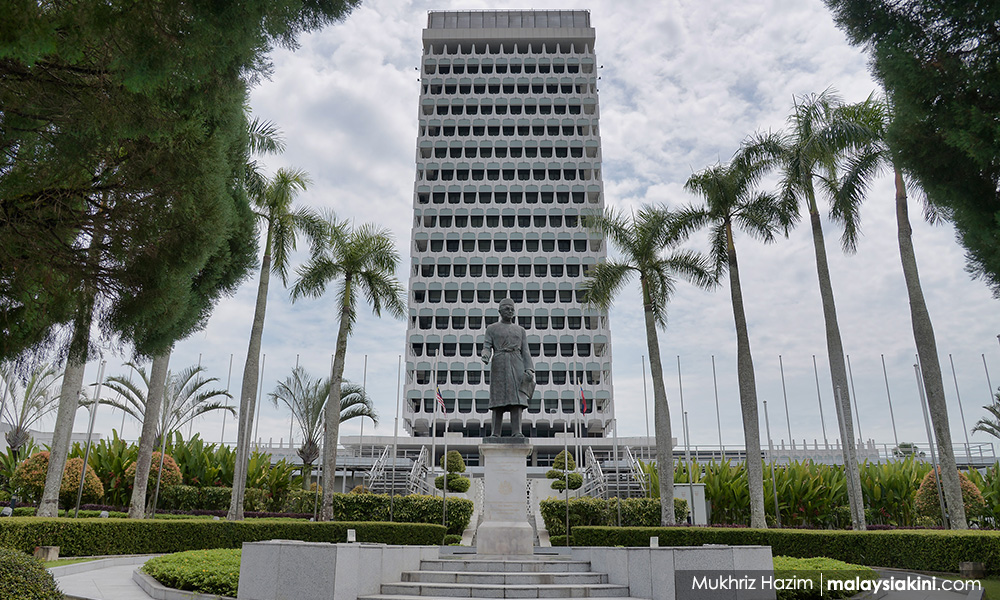The CSO Platform for Reform refers to a statement issued by Communications Minister Fahmi Fadzil who stated that the Parliamentary Special Select Committee (PSSC) is the best forum to monitor the progress of each ministry compared to the shadow cabinet formed by Perikatan Nasional.
We do not agree with this statement and think that recognition should be given to both these mechanisms and highlight the strengths found in the shadow cabinet concept.
It cannot be denied that the PSCC provides a platform for cross-party forms of collaboration and oversight while the shadow cabinet serves as an important counterpart in ensuring robust scrutiny and accountability in the parliamentary system.
In this matter, the United Kingdom is used as a model country in the implementation of this shadow cabinet.
CSO Platform for Reform believes that this shadow cabinet concept will empower certain specific expertise. The shadow cabinet ministers appointed in the context of the parliamentary opposition will represent their specific expertise to increase the oversight of government functions.
These appointments are often made based on individual parliamentarians' qualifications, experience, and expertise in specific areas related to their assigned portfolios.

For example, in the UK, the appointment of David Lammy as Shadow Secretary of State for Foreign Affairs, Commonwealth and Development is a suitable example where he has a lot of experience in government and public service such as being an MP for Tottenham since 2000.
He is an expert in the areas of justice, higher education and culture, making it a valuable asset in shaping policy in this important area. His background in law and advocacy work on social justice and equality added value to his expertise.
Policy formulation
The concept of the shadow cabinet will also be seen as an alternative in the context of policy formulation. The shadow cabinet needs to play an important role not only in scrutinising the government's actions but also in actively engaging in policy formulation and alternative initiatives.
This proactive approach will serve to foster a healthy competition of ideas within the parliamentary system and ensure that diverse perspectives are considered in the legislative process.
This situation can be seen in the UK through the formulation of alternative economic strategy development policies prepared by the Labour Party during Ed Miliband's tenure as leader of the opposition from 2010 to 2015.
During this time, Labour's shadow Chancellor Ed Balls led efforts to outline the plan for an alternative economy that promoted growth through targeted investment in infrastructure, job creation, and support for small businesses versus a conservative-led government that focused only on fiscal consolidation and spending cuts to reduce the deficit.
The implementation of this shadow cabinet will also increase awareness and ensure that the government is more responsible in the eyes of the public.
At this time, media platforms should be used as much as possible to increase the visibility of the ministers in the shadow cabinet to the public.
By holding regular press conferences, participating in televised debates and answering public questions, shadow ministers can demonstrate their accountability to the electorate.
Their willingness to engage with the media in addressing the public's concerns will strengthen the democratic principles of government oversight and further foster the people's trust and confidence in the political process.
Salary
The CSO Platform for Reform suggests that members of this shadow cabinet be paid through parliamentary allowances allocated to opposition parties. This allowance will cover various expenses, including salaries for staff, office expenses, and other resources required for the functioning of opposition MPs and their teams.

This situation applies in the UK where salaries for shadow cabinet members are determined by the Independent Parliamentary Standards Authority (IPSA) which is responsible for setting the salaries and expenses of MPs in the UK Parliament.
The IPSA will periodically review and adjust the salaries and allowances of parliamentarians based on various factors including the cost of living and comparable public sector salaries.
The PSSC and the shadow cabinet both play a very important role in upholding democratic values and ensuring effective governance in the parliamentary system. Although this PSSC aims to form cooperation and oversight across party lines, the shadow cabinet functions as an important pillar in policy formulation and public accountability.
Furthermore, these two mechanisms are seen to form a symbiotic relationship, each fulfilling different functions but complementing each other in upholding democratic principles and promoting effective governance for the benefit of the people.
The CSO Platform for Reform urges the government for a fair assessment of both PSSC and shadow cabinet mechanisms.
Although the PSCC emphasises monitoring the ministers’ progress, the shadow cabinet offers a valuable alternative forum for oversight and accountability, bringing diverse perspectives and rigorous scrutiny to governmental actions.
Acknowledging and harnessing the strengths inherent in both the PSSC and the shadow cabinet can foster a more robust and comprehensive approach to governance and promote transparency and democratic principles. - Mkini
The views expressed here are those of the author/contributor,
CSO Platform for Reform and do not necessarily represent the views of MMKtT.




No comments:
Post a Comment
Note: Only a member of this blog may post a comment.